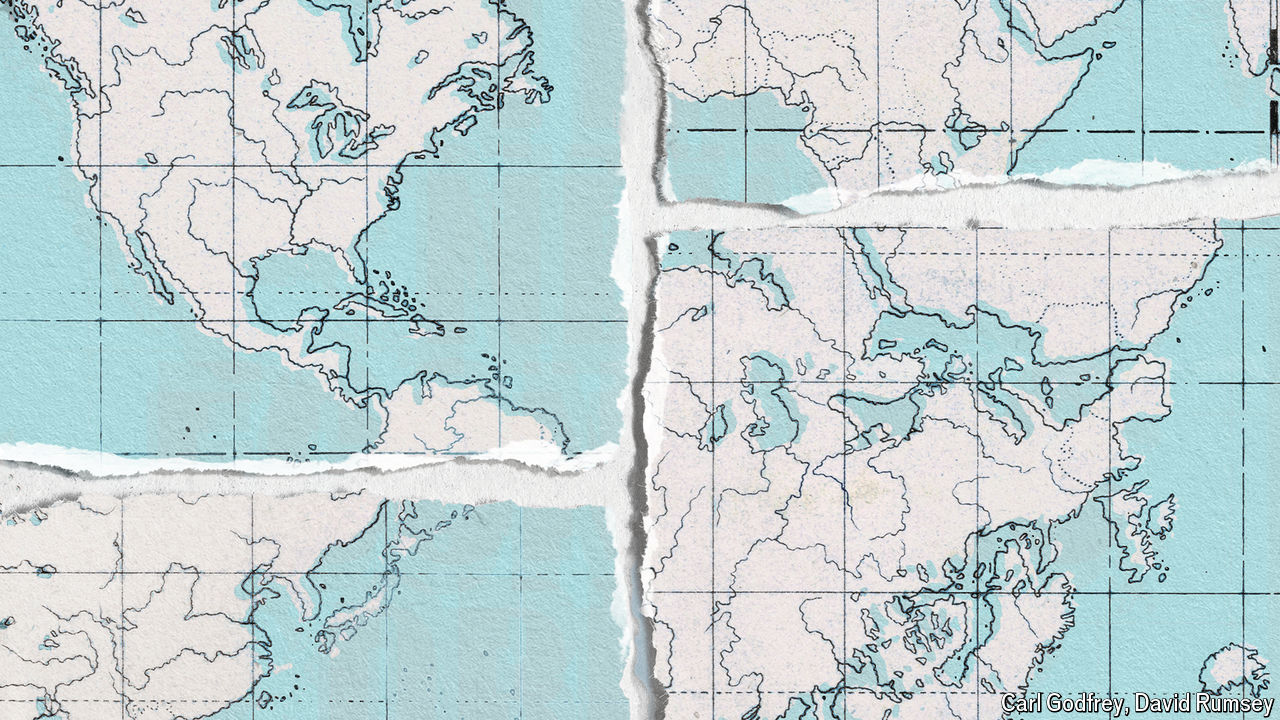https://archive.ph/jWnLI
But the achievements of the 1990s and 2000s—the high point of liberal capitalism—are unmatched in history. Hundreds of millions escaped poverty in China as it integrated into the global economy. The infant-mortality rate worldwide is less than half what it was in 1990. The percentage of the global population killed by state-based conflicts hit a post-war low of 0.0002% in 2005; in 1972 it was nearly 40 times as high. The latest research shows that the era of the “Washington consensus”, which today’s leaders hope to replace, was one in which poor countries began to enjoy catch-up growth, closing the gap with the rich world.
Wtaf is this. You can thank the state capacity and communists of China for the poverty numbers , not whatever these dolts think liberalism accomplished. And they're gonna ignore the immiseration inflicted intentionally by those very same liberals upon the post USSR states and Yugoslavia?
And I'm just a simple country communist but , rhetorically speaking, I would probably not cite a year in the mid 2000s as a benchmark for low war deaths, even if it is technically true they don't cite anything so the claim is basically useless.

As for poor countries catching up with their extractors in the imperial core I just have to laugh. What do you think happens to your western import predicated economy if, say, the cobalt miners of Africa or the garment workers of Bangladesh , or the auto workers of Mexico all unionised and demanded the exploited portion of value for their labour? Or the states themselves at least took that portion in their hands instead of foreign companies. Let's count how many Washington bullets fall on their heads in the name of price stabilité

Leave it to the economist to engage in the most shameless rewriting of history.
Even the 2005 number is certainly bullshit. This was the middle of The Iraq War where the US was in the process of killing about a million people in Iraq alone. I'm sure the statistic is a "clever" accounting that refused to call the insurgency or US-killed civilians "state-based" or conveniently did not count those dying from the destruction of infrastructure and lack of necessities.
Liberals constantly lie.
If there was a famine in the USSR it is because Stalin used his big straw to drink all of the rain personally.
If there is an infrastructure collapse in a country the US invades, well that's just market conditions baby.
If you remove the USSR and the PRC from the calculation, world poverty was basically unchanged in the 20th century. Liberalism hasn’t does shit for the global south.
Yeah, I had a lot of eye rolling when reading this article
it's coming apart because America is dismantling it
an epic, world-historic self-own
After dabbing on the world for 4 decades, alas, the world dabbed back.
A Pessimistic Economist Laments The End Of Order | Moon of Alabama
Interestingly the Economist does not name a solution or way to avoid it. It sees a collapse coming, blames -more or less- the U.S. for causing it, but does not point to way out of it.
That is an uncharacteristically pessimistic view for writers who otherwise like to paint a positive picture for those with big money.
Is this capitalist media finally entering acceptance stages of grief? :)
The IMF is gripped by an identity crisis, caught between a green agenda
 :sus:
:sus:I chuckled at that bit as well, par for the course considering this is the economist
I’m not going to prematurely celebrate the collapse of the liberal international order as it may yet find a way to limp along a while longer. But.
We have already seen earlier, when discussing world schematism, that in connection with this Hegelian nodal line of measure relations — in which quantitative change suddenly passes at certain points into qualitative transformation — Herr Dühring had a little accident: in a weak moment he himself recognised and made use of this line. We gave there one of the best-known examples — that of the change of the aggregate states of water, which under normal atmospheric pressure changes at 0° C from the liquid into the solid state, and at 100°C from the liquid into the gaseous state, so that at both these turning-points the merely quantitative change of temperature brings about a qualitative change in the condition of the water.
—Engels, Anti-Dühring
There are decades where nothing happens; and there are weeks where decades happen.
— Vladimir Lenin, allegedly
“How did you go bankrupt?” Bill asked.
“Two ways,” Mike said. “Gradually, then suddenly.”
— Ernest Hemingway, The Sun Also Rises
“As he read, I fell in love the way you fall asleep: slowly, and then all at once.”
— John Green, The Fault in Our Stars
Quote Investigator: Days Into Which 20 Years Are Compressed
Change often unfolds in a gradual manner, with its true impact only becoming apparent when an inflection point is reached. As the current system operates within acceptable parameters, the subtle accumulation of issues may go unnoticed. However, as these problems continue to pile up, they eventually reach a critical mass that renders it impossible to maintain the status quo.
For years the order that has governed the global economy since the second world war has been eroded. Today it is close to collapse.
Nope, Keynesianism and Hayekism aren't the same. The order changed with the lost of the manufacturing economy and the rise of the services in the western world.
I do agree that we are at the end of a period if not civilization. Capitalism is cracking and won't survive.
Holy shit this article gave me copium overdose and intense second hand embarrassment.
The decline of the system threatens to slow that progress, or even throw it into reverse. Once broken, it is unlikely to be replaced by new rules. Instead, world affairs will descend into their natural state of anarchy that favours banditry and violence. Without trust and an institutional framework for co-operation, it will become harder for countries to deal with the 21st century’s challenges, from containing an arms race in artificial intelligence to collaborating in space. Problems will be tackled by clubs of like-minded countries. That can work, but will more often involve coercion and resentment, as with Europe’s carbon border-tariffs or China’s feud with the IMF. When co-operation gives way to strong-arming, countries have less reason to keep the peace
Literally nothing different there. The difference is that America won't have a monopoly on the banditry and violence anymore.
It is true that the system established after the second world war achieved a marriage between America’s internationalist principles and its strategic interests.
EXCUSE ME? America's INTERNATIONALIST principles? Are you taking the piss mate? Having a laugh.
Reading these articles from mainstream western media is like stepping into an alternate reality.
Historians talking about Pax Romana and Pax Britannia but not talking about the fucking Gauls, Dacians, Jews, or about native Australians, Indians, or the entire continent of Africa.

















